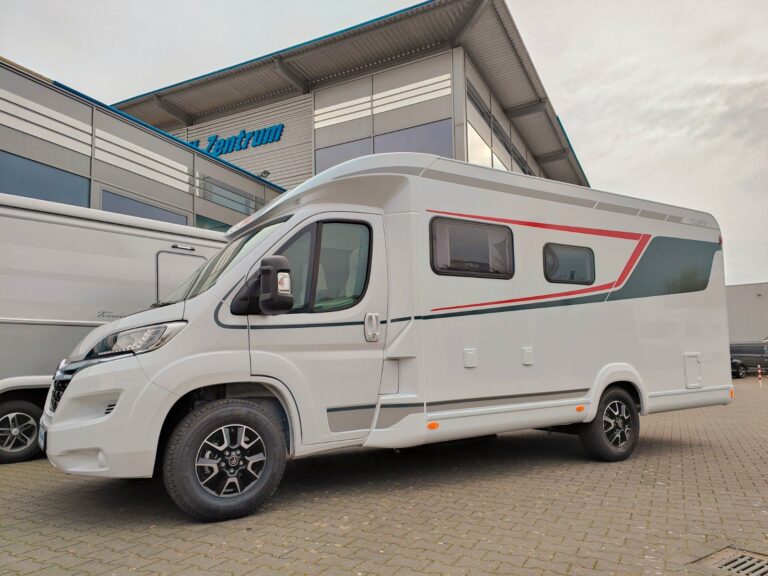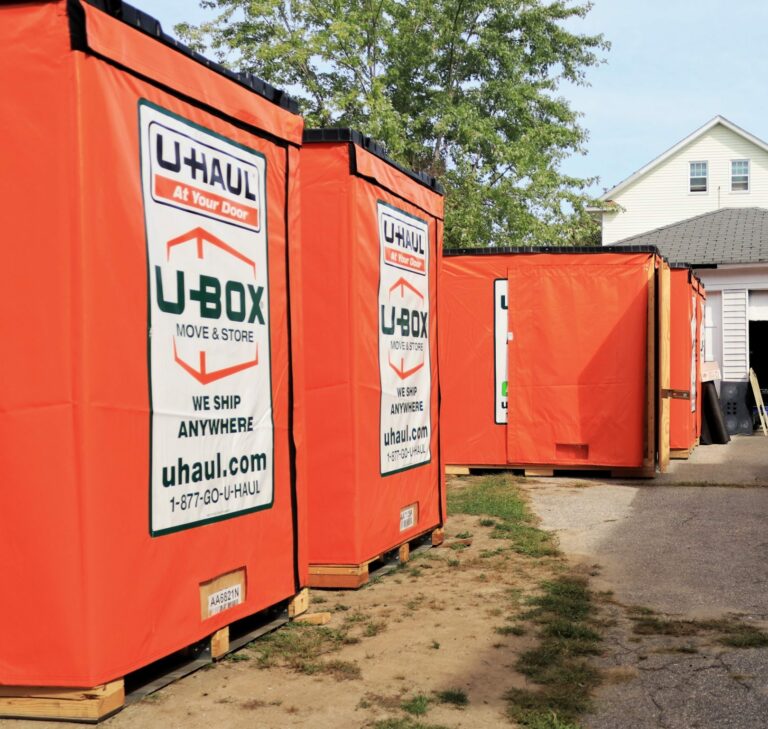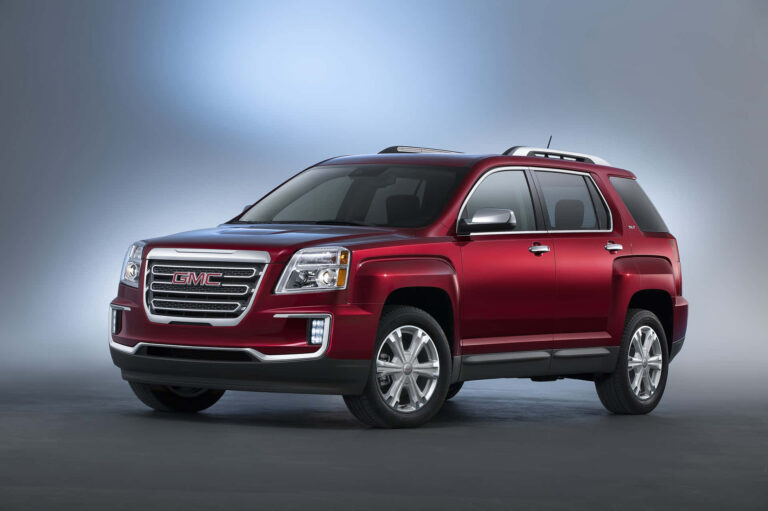Used CNG Pickup Trucks For Sale: A Comprehensive Buyer’s Guide
Used CNG Pickup Trucks For Sale: A Comprehensive Buyer’s Guide cars.truckstrend.com
Introduction: Driving Green and Saving Green
In an era where both economic efficiency and environmental responsibility are paramount, the humble pickup truck is evolving. While traditional gasoline and diesel models still dominate, a compelling alternative has quietly gained traction: the Compressed Natural Gas (CNG) pickup truck. Offering a unique blend of robust utility and cleaner, more affordable fuel, these vehicles present an intriguing option for businesses and individuals alike. Specifically, used CNG pickup trucks for sale represent a particularly attractive proposition, allowing buyers to tap into the benefits of natural gas without the higher initial investment of a new vehicle. This comprehensive guide will delve into everything you need to know about navigating the market for used CNG pickup trucks, helping you make an informed decision that benefits your wallet and the planet.
Used CNG Pickup Trucks For Sale: A Comprehensive Buyer’s Guide
Why Choose a Used CNG Pickup Truck? Exploring the Benefits
Opting for a used CNG pickup truck isn’t just about finding a good deal; it’s about embracing a set of distinct advantages that can significantly impact your operating costs and environmental footprint.
1. Significant Fuel Cost Savings
This is arguably the most compelling reason. Natural gas, particularly CNG, is often significantly cheaper per equivalent gallon than gasoline or diesel. While prices fluctuate, the historical trend shows a substantial discount, especially for fleet operators or individuals with high mileage demands. Over the lifespan of the vehicle, these savings can amount to thousands of dollars, effectively offsetting any potential premium for the CNG system.
2. Environmental Friendliness
CNG burns cleaner than gasoline or diesel, producing fewer greenhouse gas emissions (like CO2) and significantly reduced levels of criteria pollutants such as nitrogen oxides (NOx), carbon monoxide (CO), and particulate matter. This contributes to better air quality, making CNG vehicles a greener choice for eco-conscious buyers and companies aiming to reduce their carbon footprint.
3. Extended Engine Life
The cleaner-burning nature of CNG results in less carbon buildup and sludge in the engine. This can lead to reduced wear and tear on engine components, potentially extending the overall lifespan of the engine and reducing maintenance frequency for certain parts.

4. Government Incentives and Rebates (Region-Dependent)
While more common for new vehicles, some regions or states may offer incentives, tax credits, or rebates for purchasing or operating alternative fuel vehicles, including used CNG trucks. It’s crucial to research local programs that might further reduce your total cost of ownership.
5. Stable Fuel Pricing
Unlike gasoline, which is heavily influenced by global oil markets, natural gas prices tend to be more stable and less prone to dramatic spikes, offering greater predictability in fuel budgeting.
6. Reduced Initial Depreciation
As a used vehicle, much of the initial depreciation has already occurred, meaning you’re buying a more stable asset compared to a brand-new vehicle. This is especially true for niche vehicles like CNG trucks, where the initial cost premium for the conversion or factory option is absorbed by the first owner.
Key Considerations Before Buying: Due Diligence is Key
Purchasing a used CNG pickup truck requires a more specialized approach than buying a conventional used vehicle. Here are critical factors to consider:
1. Condition of the CNG System
This is paramount. The CNG system includes the fuel tanks, fuel lines, pressure regulator, injectors, and safety shut-off valves.
- Tank Certification: CNG tanks have a finite lifespan and require re-certification or replacement at specific intervals (typically every 3-5 years or 15,000 miles, depending on the manufacturer and jurisdiction). Verify the tank’s last inspection date and ensure it’s still certified or factor in the cost of re-certification or replacement.
- Leak Detection: Ask about any history of leaks or odd smells. A pre-purchase inspection must include a thorough check for leaks in the CNG lines and connections.
- Component Integrity: Check the condition of all visible components for signs of damage, corrosion, or tampering.
2. Vehicle Maintenance History
A complete service history is always important for used vehicles, but it’s doubly so for CNG trucks. Look for records of regular oil changes, filter replacements, and any specific maintenance related to the CNG system. This indicates whether the previous owner properly cared for the specialized components.
3. Mileage and Age
While CNG can extend engine life, high mileage or very old vehicles still come with increased risks of wear and tear on other components (transmission, suspension, brakes). Balance the potential fuel savings against potential repair costs.
4. Availability of CNG Fueling Stations
This is a critical practical consideration. CNG fueling infrastructure is not as widespread as gasoline stations. Map out the CNG stations in your operational area and along your typical routes. If you plan to travel extensively, research station availability in those regions. This factor alone can make or break the practicality of a CNG vehicle.
5. Bi-Fuel vs. Dedicated CNG
Some CNG trucks are "bi-fuel," meaning they can run on both CNG and gasoline (or sometimes diesel), offering greater range and flexibility if CNG stations are scarce. Dedicated CNG vehicles run solely on natural gas, which can simplify the system but limits your fueling options. Understand which type you’re looking at and its implications for your usage.
6. Insurance and Resale Value
Check with your insurance provider to see how a CNG system affects your premiums. While the upfront cost is lower for a used vehicle, the resale market for CNG trucks can be smaller and more specialized, potentially affecting future liquidity.
7. Legalities and Regulations
Be aware of any local, state, or federal regulations regarding CNG vehicle registration, safety inspections, or parking restrictions (e.g., some tunnels or parking garages may have restrictions for CNG vehicles).
Where to Find Used CNG Pickup Trucks
Finding a used CNG pickup truck can sometimes be more challenging than locating a standard gasoline or diesel model due to their niche market.
- Online Marketplaces: Websites like Craigslist, Facebook Marketplace, eBay Motors, and general automotive classifieds (e.g., AutoTrader, Cars.com) are good starting points. Use specific search terms like "CNG pickup," "natural gas truck," or "bi-fuel truck."
- Specialized Dealerships: Some dealerships, particularly those that cater to commercial fleets or alternative fuel vehicles, may have used CNG inventory.
- Fleet Auctions: Government agencies, utility companies, and large corporations often operate CNG fleets and periodically auction off their used vehicles. These can be excellent sources for well-maintained trucks.
- Private Sellers: Direct sales from previous owners can sometimes offer better deals, but require more diligent personal inspection.
- CNG System Installers/Converters: Companies that specialize in converting vehicles to CNG may also have used converted trucks for sale or know where to find them.
The Buying Process: A Step-by-Step Guide
Once you’ve identified a potential candidate, follow these steps to ensure a smart purchase:
- Initial Research & Contact: Gather as much information as possible from the seller (mileage, year, make, model, CNG system details, service history). Ask for photos and any known issues.
- Verify CNG System Details: Confirm if it’s a factory original or an aftermarket conversion. Get details on the CNG tank’s last inspection/certification date and any upcoming requirements.
- Pre-Purchase Inspection (PPI): This is non-negotiable. Have a qualified, independent mechanic (ideally one familiar with CNG systems) thoroughly inspect the entire vehicle, paying special attention to the CNG components, fuel lines, and tank integrity. They should check for leaks, proper pressure, and system functionality.
- Test Drive: Drive the truck on both CNG and gasoline (if bi-fuel) to assess performance, acceleration, braking, and handling. Listen for unusual noises and test all features.
- Negotiation: Based on the inspection findings and market value, negotiate the price. Factor in any immediate maintenance or certification costs.
- Paperwork: Ensure the title is clear, and all registration and transfer documents are properly handled. Get a bill of sale detailing the vehicle and CNG system.
- Post-Purchase Checks: After purchase, consider an immediate service for fluids and filters. If the CNG tank certification is nearing expiry, schedule the re-certification promptly.
Common Models and Brands to Look For
While specific models can vary by region and what was available as a factory option or common conversion, here are some brands and models you might encounter:
- Ford F-Series (F-150, F-250, F-350): Ford has offered "CNG/Propane Prep" packages for its trucks, making them ready for aftermarket conversion or, in some cases, offering factory-installed systems.
- Ram 1500: Ram offered a factory-installed bi-fuel CNG option on its 1500 pickups for several years, making them a common sight in the used market.
- Chevrolet Silverado/GMC Sierra: Similar to Ford, GM has offered CNG-ready versions of its popular truck lines, which were then converted by third parties or sometimes offered as fleet options.
- Aftermarket Conversions: Many other truck models might have been converted to CNG after purchase. These can be good value, but the quality of the conversion system and installer is crucial.
Maintenance Tips for Your Used CNG Pickup
Proper maintenance is key to the longevity and safety of your CNG truck:
- Follow Manufacturer’s Schedule: Adhere to the truck’s original maintenance schedule for oil changes, tire rotations, and general upkeep.
- CNG System Checks: Have the CNG system inspected regularly by a qualified technician, as recommended by the system manufacturer. This includes checking for leaks, inspecting lines and connections, and replacing CNG filters.
- Tank Re-certification: Strictly adhere to the re-certification schedule for your CNG tanks. This is a critical safety requirement.
- Spark Plugs: CNG burns hotter and cleaner, which can sometimes affect spark plug wear differently than gasoline. Follow recommendations for CNG-specific spark plugs and replacement intervals.
- Visual Inspections: Periodically inspect the CNG tanks for any signs of damage, dents, or corrosion.
Estimated Price Range Table for Used CNG Pickup Trucks (USD)
Please note: These prices are highly estimated and can vary wildly based on vehicle condition, mileage, year, region, type of CNG system (factory vs. aftermarket, bi-fuel vs. dedicated), and market demand. This table serves as a general guide.
| Make/Model | Year Range | Estimated Price Range (USD) | Key Features/Notes |
|---|---|---|---|
| Ram 1500 (Bi-Fuel) | 2012-2018 | $15,000 – $35,000 | Factory-installed bi-fuel system; popular choice. |
| Ford F-150 (CNG Prep) | 2011-2019 | $12,000 – $30,000 | Aftermarket conversion on "CNG-prep" models; good value. |
| Ford F-250/F-350 (CNG Prep) | 2011-2019 | $18,000 – $40,000 | Heavier duty, often fleet vehicles; aftermarket conversion. |
| Chevy Silverado 1500 (CNG Ready) | 2012-2018 | $10,000 – $28,000 | Aftermarket conversion on "CNG-ready" models. |
| Chevy Silverado 2500/3500 (CNG Ready) | 2012-2018 | $15,000 – $35,000 | Heavy duty, often ex-fleet; aftermarket conversion. |
| Older/Misc. Converted Pickups | 2005-2010 | $5,000 – $15,000 | Prices vary significantly based on conversion quality. |
Frequently Asked Questions (FAQ) About Used CNG Pickup Trucks
Q1: Is it safe to drive a used CNG pickup truck?
A1: Yes, CNG vehicles are very safe. The tanks are incredibly robust and designed to withstand extreme conditions. Modern CNG systems have multiple safety features, including automatic shut-off valves in case of an accident or leak. However, proper maintenance and adherence to tank re-certification schedules are crucial for continued safety, especially with used vehicles.
Q2: What is the typical range of a CNG pickup truck on natural gas?
A2: Range varies significantly based on tank size, vehicle efficiency, and driving conditions. Dedicated CNG trucks generally have a shorter range than gasoline equivalents, but bi-fuel trucks can switch to gasoline when CNG runs low, effectively extending their range indefinitely. A typical CNG range might be 150-300 miles, but larger tanks can offer more.
Q3: How often do CNG tanks need to be re-certified or replaced?
A3: CNG tanks typically require re-certification every 3 to 5 years, or every 15,000 miles, depending on the tank manufacturer’s specifications and local regulations. The exact interval is usually stamped on the tank. Failure to re-certify can lead to fueling stations refusing service. Tanks also have an end-of-life date, usually 15-20 years, after which they must be replaced regardless of condition.
Q4: Can I convert my existing gasoline pickup truck to CNG?
A4: Yes, it is possible to convert many gasoline vehicles to run on CNG. This is typically done by specialized aftermarket installers. The cost can vary from $7,000 to $15,000 or more, depending on the vehicle and system complexity. It’s crucial to use a certified installer and ensure the conversion kit is approved for your vehicle model.
Q5: What are the common issues with used CNG trucks?
A5: Beyond typical used vehicle wear and tear, common issues specific to CNG trucks can include: expired tank certifications, minor leaks in the fuel lines (though often detectable by smell), issues with pressure regulators or injectors, and wear on components if the CNG system wasn’t properly maintained. Availability of parts for older aftermarket systems can sometimes be a challenge.
Q6: Is it hard to find parts for CNG systems?
A6: For factory-installed systems (like those on some Ram 1500s), parts are generally available through OEM channels. For aftermarket conversions, parts availability depends on the specific conversion kit manufacturer. Reputable installers often use common, widely available components, but it’s always wise to check on the specific system installed in a truck you’re considering.
Conclusion: A Smart Investment for the Right Buyer
Used CNG pickup trucks for sale offer a compelling blend of utility, cost savings, and environmental benefits. They represent a smart investment for businesses and individuals operating within a reasonable proximity to CNG fueling infrastructure, or those prioritizing lower emissions and stable fuel costs. While the purchasing process demands thorough due diligence, particularly regarding the integrity and certification of the CNG system, the rewards can be substantial. By carefully researching, inspecting, and understanding the unique aspects of these vehicles, you can confidently navigate the market and drive away with a workhorse that’s not only capable but also remarkably efficient and responsible. Embrace the future of cleaner, more economical transport – the used CNG pickup truck might just be your ideal next vehicle.





